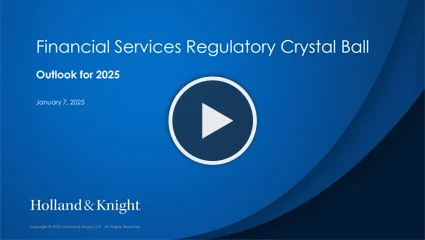It's a privilege to be with you today. Today's topic is the Federal Trade Commission (FTC) is proposing a rule to fight government and business impersonation scams, and companies who provide “means or instrumentalities” for those committing such a scam will be held liable.
Context for the Proposed Rule
The Federal Trade Commission has proposed a rule to fight government and business impersonation scams — a problem that has cost consumers hundreds of millions of dollars over the past five years according to the FTC. The proposed rule would codify the well-understood principle that impersonation scams violate the FTC Act, as do those who provide impersonators with the means to harm consumers. The proposed rule would allow the Commission to recover money from, or seek civil penalties against, scammers who harm consumers in violation of the rule.
Samuel Levine, director of the FTC’s Bureau of Consumer Protection, said the following: “The proposed rule will expand the Commission’s tool to combat the significant harm caused by government and business impersonation frauds. We look forward to comments from the public on our efforts to deter fraud, hold impersonators accountable and secure redress for consumers.”
Fraud reports to the FTC about government and business impersonation scams rose sharply at the beginning of the COVID-19 pandemic. The FTC received more than 2.5 million reports of these scams from consumers nationwide from the beginning of 2017 through the middle of 2022, and those consumers reported losing more than $2 billion to these scams.
Forms of Impersonation
Government and business impersonators can take many forms, for example, posing as a lottery official, a government official or employee, or a representative from a well-known business or charity. Impersonators may also use implicit representations, such as misleading domain names and URLs and “spoofed” contact information, to create an overall net impression of legitimacy. These scammers are fishing for information they can use to commit identity theft or seek monetary payment, often requesting funds via wire transfer, gift cards or, increasingly, cryptocurrency.
Comments on the Proposed Rule
The proposed rule follows an Advance Notice of Proposed Rulemaking published by the Commission last December. In response to that notice, the FTC received more than 160 public comments, none of which opposed proceeding with the rulemaking process. Comments came from members of the public as well as a bipartisan coalition of 49 state attorneys general and multiple companies and industry organizations.
Content of the Proposed Rule
The proposed rule would ban scammers from:
- using government seals or business logos when communicating with consumers by mail or online
- spoofing government and business emails and web addresses, including spoofing “.gov” email addresses or using lookalike email addresses or websites that rely on misspellings of a company’s name
- falsely implying government or business affiliation by using terms that are known to be affiliated with a government agency or business (e.g., stating “I’m calling from the Clerk’s Office” to falsely imply affiliation with a court of law)
The proposed rule would also apply to those who provide “means or instrumentalities” for those committing a government or business impersonation scam, such as a supplier who manufactures a fake government credential used by scammers. In addition, the proposed rule would include nonprofit organizations in its definition of businesses, so that it would apply to scammers that impersonate charities.
The proposed rule would allow the FTC to seek relief for consumers across a broad array of government and business impersonation cases. This is especially important following the Supreme Court’s ruling in AMG Capital Management LLC v. FTC, which significantly limited the agency’s ability to return to consumers money that was taken in a scam.
Conclusion
So here's the key takeaway. The FTC is in the business of identifying the various forms of consumer scams. Notwithstanding the Commission’s loss in the Supreme Court’s AMG case that limits its ability to obtain monetary relief, the FTC is finding ways to get such remedies. Stay tuned to further programs as we identify and address the key issues and developments and provide strategies for success. I wish you continued success and a meaningful day.



